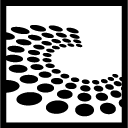23C3 - 1.5
23rd Chaos Communication Congress
Who can you trust?
| Referenten | |
|---|---|

|
Christine Corbett Moran |
| Programm | |
|---|---|
| Tag | 1 |
| Raum | Saal 2 |
| Beginn | 20:30 |
| Dauer | 01:00 |
| Info | |
| ID | 1701 |
| Veranstaltungstyp | Vortrag |
| Track | Science |
| Sprache | englisch |
| Feedback | |
|---|---|
|
Haben Sie diese Veranstaltung besucht? Feedback abgeben |
Open Source Machine Translation
From tools, to tricks, to projects: build a translation engine from Klingon to Finnish in an hour

Today two revolutions are pushing the machine translation field forward: the open source movement, and the broader application of statistical methods. This talk is at the intersection of the two: centering around the applications and contributions to be made to Moses, a state of the art open source toolkit for statistical machine translation developed by researchers from MIT, Edinburgh, Cornell, and Aachen.
Today two revolutions are pushing the machine translation field forward: the open source movement, and the broader application of statistical methods. This talk is at the intersection of the two: centering around the applications and contributions to be made to Moses, a state of the art open source toolkit for statistical machine translation developed by researchers from MIT, Edinburgh, Cornell, and Aachen. In the past, those who wanted quality machine translations were forced to rely on closed source, rule based engines such a SYSTRAN. Even most of Google's translation engine uses SYSTRAN software. But Google and others are moving towards flexible, trainable systems, based on computer generated statistics rather than PhD linguist generated rules. This means a machine translation is accessible to the average user. Next time, instead of getting angry or amused by a poor translation provided by Google Translate or BabelFish, use your own copy of the open source engine and you can hack away, helping to improve translation quality for yourself and users around the globe.
